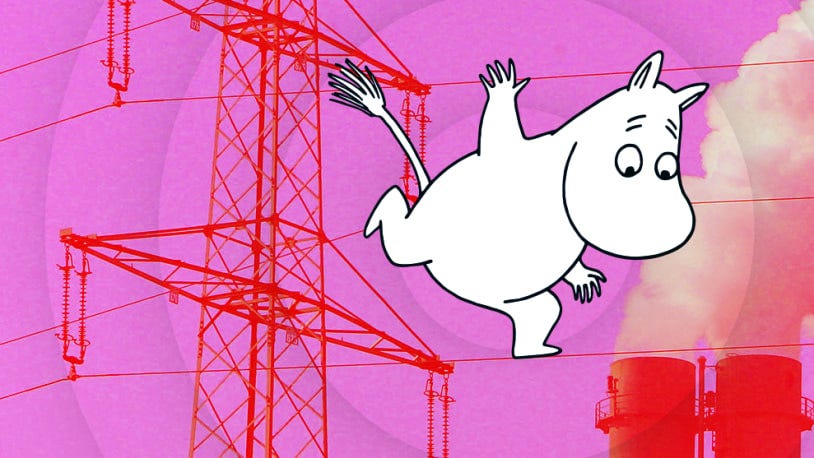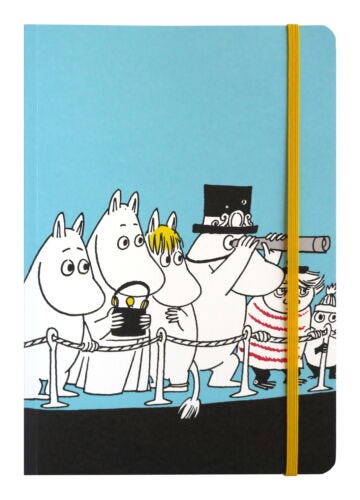Career Tools.
The Future Does Not Fit in the Containers of the Past. Edition 87.
Here are four tools that may help on a career journey.
They are a map, a telescope, a compass and a first aid kit.
A map.
A working life will last four or five decades and will span three broad phases. An early, middle, and late stage.
It is important to know where you are and what are the guideposts that matter at each stage.
Early in the journey.
A life of work is a decades long adventure.
A marathon not a sprint.
During the early years it is important to align with the long-term trends that can serve as a tail wind. Every era has its growth industry and secular forces. Being in the right industries or the right areas in an industry can help you be successful. Conversely, regardless of how good you are and how hard you work, it will be hard to sell typewriters in an age of word processors.
Another key in the early years is not to be discouraged when the landscape or weather turns difficult. Even the best jobs in the early years suck for a third of the time. One should not turn back, stop moving forward or give up. Time dissolves more problems than man or woman solves.
Finally, keep your eyes on the horizon and not fixated on other travelers. You are trying to improve and get better towards a goal versus trying to stop others or getting to the goal faster than others. Improving versus your past self is the only true measure. Competing with others is not beneficial and you may need their help when you hit setbacks and you need others to carry you forward.
Middle of the journey.
It is at this stage where extra-ordinary career trajectories are enabled by finding the right sherpas and focusing on the movement and paths that serve you well.
Find a great boss or mentor and start to focus on what you excel at and gives you joy.
A large part of anybody’s success is driven by who they report to. The right manager and leader not only mentors and teaches but also delegates and promotes. Often these skills not only allow you to thrive, but it enables your manager to progress in the organization paving a path for your own forward momentum.
A decade or two into a career most people begin to understand what they are good at and what gives them joy. It is imperative that one now focusses on these key strengths and not allow your company to try to make you a “well-rounded player” or spend time addressing your weaknesses. Yes, it is important to understand how different components of an organization work and to be collaborative but companies and markets reward expertise, competency, and skills and not some mish mash goo of generalities.
Late in the journey.
Three decades or more into a career one still has a decade or two ahead and there are two keys to ensure that these decades are productive, impactful, and meaning filled.
First, you must check to see if the map you are using remains valid. Just as anyone looking at a map of a world from decades ago would not recognize the names of countries or boundaries today, the same holds true for expertise. It is time to unlearn parts of what you know, transform your way of operating, and potentially re-invent yourself to align with a different terrain.
Second, this is where you need to determine if it makes sense to take a different road or trajectory as you continue your journey. Exits are as important as entrances. Every career in a company has a midnight hour, and the smart ones leave at five to twelve. This is not just elegant but can extend and amplify one’s career and impact.
To read more about the different career phases please read 12 Career Lessons.
A telescope.
As one progresses in a career it is important to look ahead and try to prepare for what may come.
The future of work is unlikely to be what it is today, and it is key that one adapt and align and skill up for what lies ahead.
Due to globalization, demographic shifts and technology change, the world of work will look very different a decade from now in at least four significant ways.
a) Gigs: Larger portions of the work force will be gig workers/free agents even if we work for long periods of time in the same company. Work has become unbundled into component parts and distributed across geographies and time zones. Cloud based and other technologies allow companies to combine and re-aggregate talent and expertise while the same technologies enable people all over the world to access opportunities they did not have. This has been true for many well-paid professions from consulting to the entertainment industry and is not just about Uber drivers and Task Rabbits.
b) Technology enabled and measured: Everything that can be digitized or technologically enabled will be. Most jobs will require us to work in tandem with machines and technology. Increasingly, work will be quantified and measured as it already has in many industries like sales where we measure the number of leads a tele-marketer close per hour or when we calibrate the cost per mile and accident-free driving skills of truckers.
c) Third Connected Age: Just as search, e-commerce, mobile and social changed business we are going to see AI, 5G, AR/VR and Blockchain sculpt new contours into what work is, how it is done, how value and ownership rights are determined and much more. The price of crypto or NFT’s or brands in the “metaverse” are the cosmetic layer of real dramatic change taking place underneath.
d) Older and more diverse workforces: Except for Africa and to a certain extent India the world is aging fast, and people are living longer while population is declining. For a variety of reasons from economic need to delayed pensions to decades of healthy life after sixty, to the desperate need for employees. the workforce is going to grow older and as a result truly multi-generational with employees spanning nearly six decades! This will be in addition to continued diversity in ethnicity and gender.
This view of the future will require us to a) create true competencies and expertise, b) build reputations and networks, c) learn to work with technology while building skills that computers cannot easily replicate and d) be ready to work with a far more diverse work force than ever before
For more clarity on the future of work please read How to Thrive in the Modern Workplace. The Fractionalized Employee. and The Age of the Seasoned.
A Compass.
In a world buffeted by change where a working life lasts decades what star does one steer by?
Find alignment with what you excel at and what makes you grow.
To frame yourself so people understand what you are at good at and at the same time continue to hone and grow your skills it is important to understand your niche, your voice, and your story.
Niche allows you to build expertise and position yourself.
Voice reflects the reality that people do not follow titles, but they follow people and want to know who you are and what you believe in.
Story gives people reason to believe and clarity on how you became who you are. We are all stories, and we need to make sure we know and can narrate ours.
To help you reveal your niche, voice and story come up with three words for each. Three words that describe what you do best at or are expert in, three words that describe who you are and three words that describe the story of your career.
These nine words can help you not only frame yourself but also filter opportunities and has been used with great success by thousands of talented people.
To understand and see the exercise please read Career Turbocharging.
While the Nine Word Exercise serves as a compass that allows you to find and point to your true north, what about a compass that can help you decide which path to take when you come to a fork in your career? When you come to ask yourself or are forced to ask, “should I stay, or should I go?”
We often make the mistake of deciding to stay or go by using the criteria of money, fame, and power as the key decision variables. Leaving one job for another for more money, fame, and power while understandable is not the main framing criteria especially once you are mid-career and relatively successful. The questions to ask are more about freedom, story and growth.
Will you have the freedom and flexibility you need that gives you satisfaction ? Do you have to suppress your story and make it a supporting actor to the story of the company or does your career and company re-enforce the story of your life ? And growth. Can you keep learning and growing as a person and professional?
How best to decide to stay or go? Please read Should I stay, or should I go?
A First-Aid Kit.
Work is important to us all. In addition to making a living, work gives many of us identity, purpose, meaning, and connections.
But work is often filled with stress, pressure, shocks, and challenges. Industries swirl, bosses change, clients pressurize, markets go haywire. Key pitches are lost, opportunities disappear, and mistakes are made. And rest of life does not stop either. Family issues arise, health fluctuates, wars and pandemics break out.
As a result, all of us at some stage or the other find ourselves stressed, angry, depressed, disappointed, lost or more.
All over the world smart companies and leaders recognize that they need to help people take care of their physical, mental and emotional operating systems.
We cannot be productive if we are spent, swirling, emotionally raw and running on fumes.
It is imperative that we find ways to feel better, to repair and to be better.
Sometimes the best thing one can do for one’s career is to focus on oneself and not on the company or the career . A physically diminished and emotionally impoverished you does not serve anyone well.
Feeling and being better is often a combination of small steps that enable compound improvement and focus on filling in gaps. It involves looking at things with new mindsets that embrace openness and improvisation. Finally, one recognizes and aligns with the reality that life combines loss, love, and learning.
Opportunities to repair and heal can be found everywhere and every day and often does not require major cost or time investments and could be found in gardens, bodies of water or in a book of poems.
A distilled compilation of how to look after yourself and others can be found in Repair and Six Ways to Feel and Be Better.
May you thrive!
Here is a list of all the pieces noted in this post for easy navigation.
How to Thrive in the Modern Workplace.
Six Ways to Feel and Be Better.
Rishad Tobaccowala is an author, advisor, speaker, and educator who distills four decades of experience to helps people see, think, and feel differently so they can help grow their companies, their teams and themselves. More about Rishad’s advisory services, best-selling book, and the range of topics of the 10 popular workshops can be found here…https://rishadtobaccowala.com/






A testimony to those 4:00am starts….TY Rishad for sharing.
Incredibly insightful with comprehensive, easy-to-understand guidance for everyone at any stage of career! My favorite quote: "Improving versus your past self is the only true measure." Thank you, Rishad.